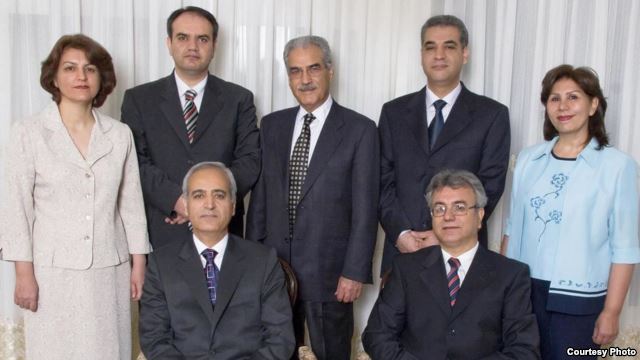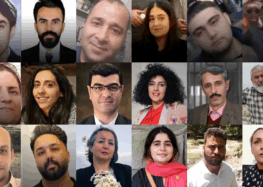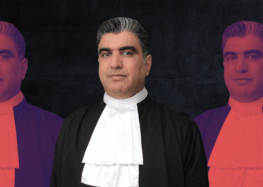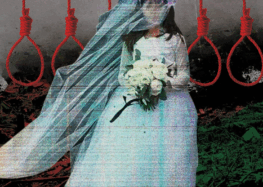Police Demolish Imprisoned Baha’i Leader’s Ancestral Home
 Iranian police demolished the home of an imprisoned Baha’i community leader in Semnan on April 22, 2015. The home belonged to Jamaloddin Khanjani, one of seven Baha’i leaders who have been in prison since 2008.
Iranian police demolished the home of an imprisoned Baha’i community leader in Semnan on April 22, 2015. The home belonged to Jamaloddin Khanjani, one of seven Baha’i leaders who have been in prison since 2008.
Mr. Khanjani’s nephew, Siavash Khanjani, told the International Campaign for Human Rights in Iran that the family had been able to secure an order from the Supreme Court to prevent the demolition, but the police had already destroyed most of the structure by the time the family arrived from Tehran with the orders.
The property is Mr. Khanjani’s family home, located in the family’s agricultural fields in Semnan Province’s Dazgareh Afshar village.
“The family received a 48-hour demolition notice from the Intelligence Ministry and the Semnan Province Council on April 19, 2015. They had 48 hours to evacuate the property. They went to Tehran with their lawyer and secured orders from the Supreme Court to stop the demolition operations, but when they arrived back in Semnan, they observed that 270 square meters of the house had already been demolished and it was too late to do anything,” Siavash Khanjani told the Campaign.
Jamaloddin Khanjani, 82, is one of seven Baha’i leaders who were arrested at his home on May 16, 2008. He was put on trial at Branch 28 of the Tehran Revolutionary Court under Judge Moghisseh on charges of “assembly and collusion against national security,” “propaganda against the state,” and “espionage,” and was sentenced to 20 years in prison. His sentence was upheld at the appeals level. He has remained inside Rajaee Shahr prison, despite old age and heart disease, without a single day of furlough.
Siavash Khanjani, a resident of Canada, told the Campaign that since Mr. Khanjani’s arrest, officials had repeatedly made claims about issues with the property’s deed and the property’s construction, threatening the family with demolition of their ancestral home and restrictions on their agricultural lands. He added that many other Baha’is living in Semnan Province have been similarly persecuted during recent years.
“Many shops belonging to Baha’i shopkeepers were shuttered, put on fire, or their operation licenses were revoked because their owners had closed their businesses to observe Baha’i religious holidays. All these activities are systematically targeting Baha’is, aiming to push Semnan Province’s Baha’i residents out of the area,” he said.
Regarding his uncle’s health, Siavash Khanjani said “He is 82 and he must remain in prison for another 13 years. During the past seven years, he was not granted even one day of furlough. He was transferred to a hospital a while back, due to heart problems. He had surgery, but they did not even agree to his post-op furlough.”
Several other members of Mr. Khanjani’s family, such as his granddaughter and his son, have been arrested and released since his arrest, and currently his grandson, Foad Khanjani, and his grand nephew, Navid Khanjani, remain in prison.
The severe and systematic persecution of the Baha’i community in Iran has been noted in the reports of the UN Secretary-General and the UN Special Rapporteur on the situation of human rights in Iran.






